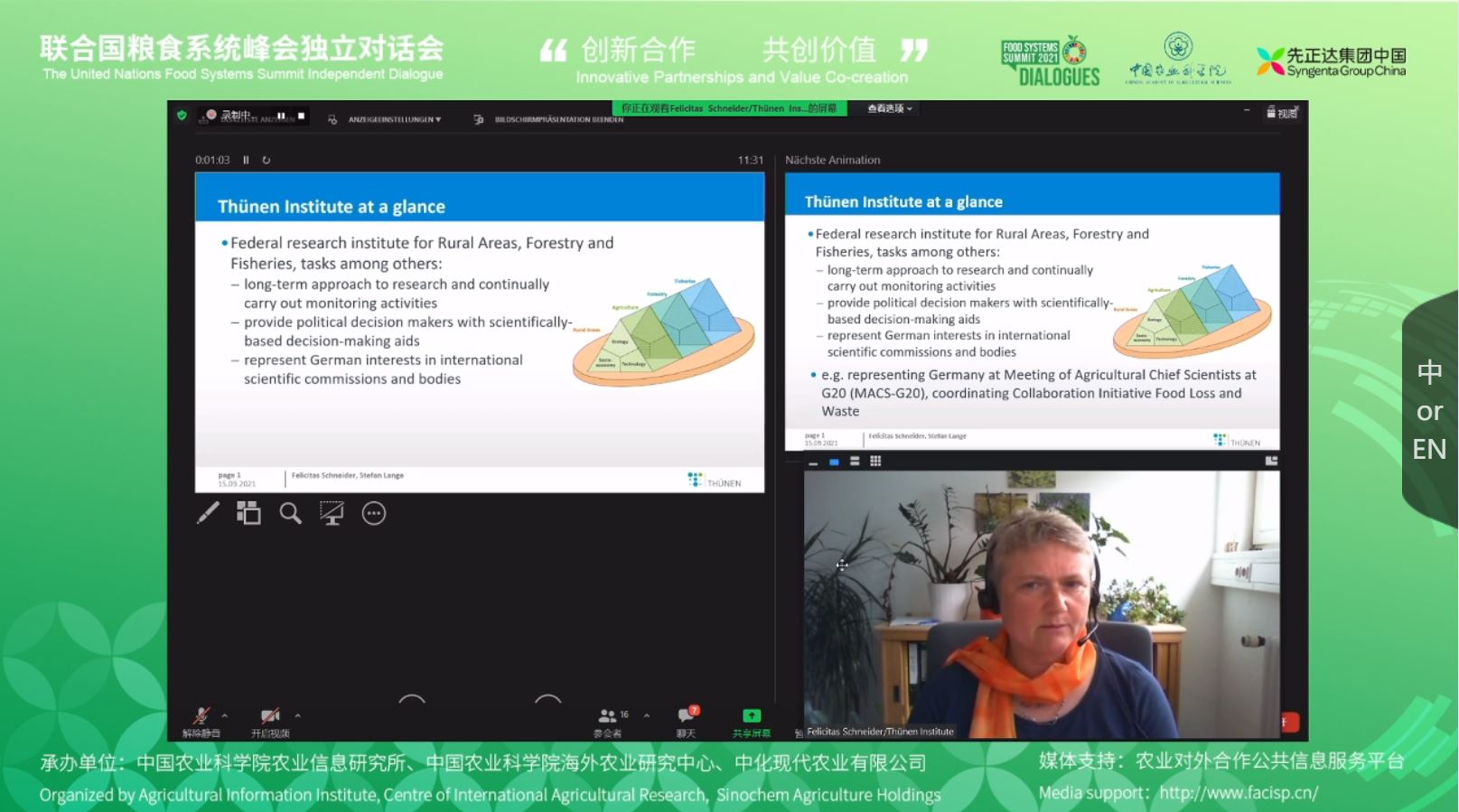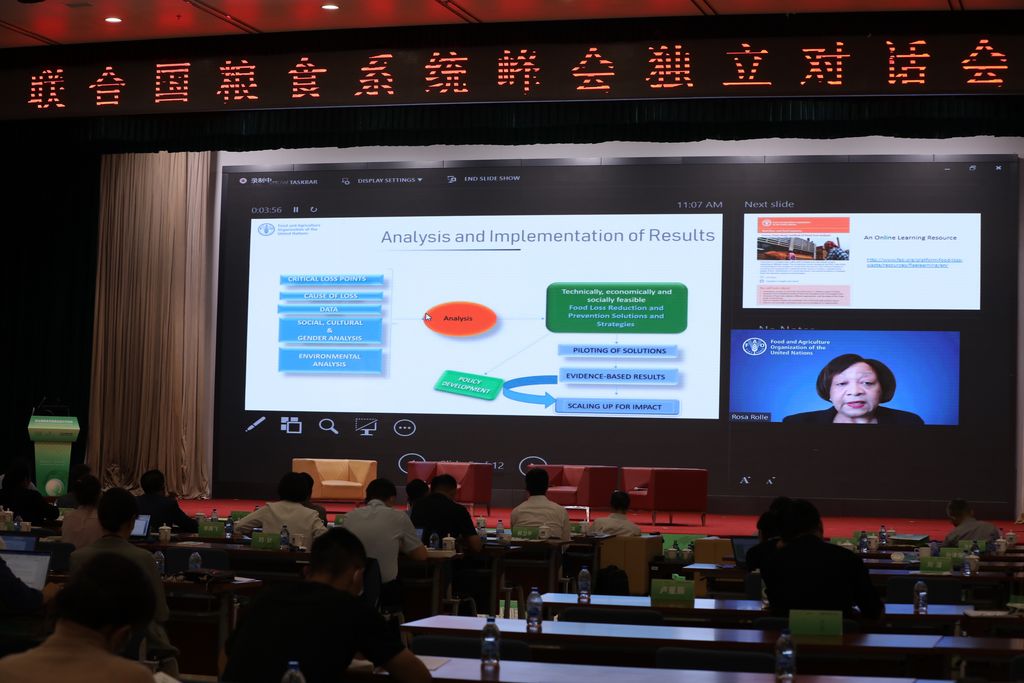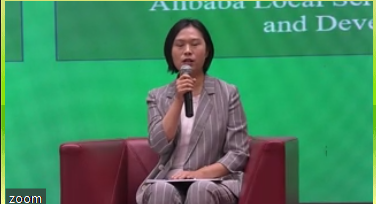China's efforts to reduce food waste - cooperation with the Thünen Institute
The UN Food Systems Summit on 23 September 2021 is the culmination of an intensive and inclu-sive discussion process on concrete changes to our global food system. Over the past 18 months, there has been a wide range of debates and forums that have united all member countries of the United Nations worldwide as well as thousands of interested parties in joint work. The aim is to mobilise all forces in order to jointly achieve the United Nations Sustainable Development Goals by 2030- despite the Covid 19 pandemic.
Our long-standing cooperation partner, Prof. Xiangping Jia from the Chinese Academy of Agricultural Research (CAAS), organised an "Independent Dialogue" on "Innovative Partnerships and Shared Value Creation" together with Syngenta Group China on 15 September. The aim of the dialogue, which was moderated by a representative of the World Food Programme, was to actively support the initiative of the UN Food Summit, to involve the public and private sectors and all stakeholders in the dialogue, to strengthen partnerships and to promote cross-border discussions and actions to transform food systems. The topics discussed were "Transformation of the food system", "Food losses and waste" and "Digital innovations and their contribution to agriculture, rural areas and farmers".
Our scientist Dr Felicitas Schneider, who coordinates the Global Initiative Food Loss and Food Waste, presented the political, legislative and structural framework for monitoring food loss and food waste in Germany. As a member country of the United Nations and the European Union, Germany is obliged to collect and regularly report on its food loss and food waste. Voluntary co-operation with companies along the value chain is intended to create a better database for this purpose. The influence of concrete reduction measures on social, monetary and ecological as-pects must be observed, emphasised Ms Schneider, in order to obtain a basis for evidence-based policy recommendations.
Two other presentations by Dr Rosa Rolle (Food and Agriculture Organisation of the United Na-tions, FAO) and Dr Shengkui Cheng (Chinese Academy of Sciences, CAS) dealt with the current state of food losses and waste at global and Chinese level respectively. Jiang Bian (China Cuisine Association) emphasised that the unchecked growth of out-of-home consumption in China is also a factor here. And Xiyan Tian (Alibaba Local Serviced Cooperation and Development) reported on the possibilities and the willingness of her company to motivate consumers and companies in the out-of-home sector to implement avoidance measures and thus contribute to a significant reduc-tion of food waste. In the panel discussion, Jiaqi Huang (CAAS) - building on the ongoing exchange with the Thünen Institute - identified the complex interrelationships in quantity measurement as well as the current gaps and methodological weaknesses in the Chinese data situation and advo-cated further international research cooperation in this direction.
More than 150 stakeholders from around the world - including representatives from relevant UN agencies, governments, academia, businesses, NGOs, financial institutions, farmers, consumer groups and the media - participated in the dialogue offline and online. The Foreign Agricultural Cooperation Information Service platform broadcast the conference live in Chinese and English, with online views reaching 5,059. You can watch the recording here.

![[Translate to English:] [Translate to English:]](/media/_processed_/3/e/csm_AdobeStock_249730128_92f14d3a63.jpeg)
![[Translate to English:] [Translate to English:]](/media/_processed_/3/e/csm_AdobeStock_249730128_a6fcf4c893.jpeg)








